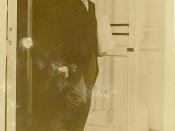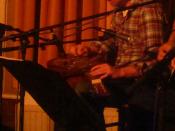The League of Nations was established as an organisation that would bring peace and harmony to the world, and historians have had mixed views on their success in that respect when looking back on the League's achievements. It is universally agreed that the League's golden era were the 1920's, during which some of their greatest accomplishments occurred, both in terms of war-prevention and disease, refugee, and slave related issues. During the 20's, the League relocated 3 million refugees, freed 200,000 slaves, and practically eradicated diseases such as smallpox and malaria in Europe. They also prevented disputes between Finland and Sweden, Yugoslavia and Albania, and forced Germany to continue paying reparations. However, although those events put the League in a positive light, their actions regarding Corfu and Bulgaria are controversial in the sense of whether it promoted the League's reputation or depreciated it. In a positive light, Corfu and Bulgaria showed the world that the League was effective in resolving conflict despite the League's problems, and that the structure and method of resolution was also effective.
The League of Nations' actions in solving the problems of Corfu and Bulgaria both embellished them in the eyes of the world, but also diminished their reputation.
The League's actions in Corfu and Bulgaria heightened their reputation in the sense that the League proved to the world that despite its shortcomings, it was still effective. When the League decided on what to do about Italy's invasion of Greece and Greece's invasion of Bulgaria, their ultimate aim was to prevent an all-out war between the countries. They successfully achieved this aim, and reached their goal of helping the world become a more peaceful place through negotiations. When Italy first invaded Greece on the pretext that the Greeks killed one of Italy's prominent generals, the League's first attempts at resolving the conflict was to make Italy pay. When that tact failed, Greece then paid Italy, who withdrew their troops from Greece. In short, war was successfully averted. In the case of Greece and Bulgaria, Greece invaded Bulgaria on the excuse that some of their soldiers were killed, and were condemned by the League who then told them to leave, which they then did. This puts the League of Nations in a very positive light as it showed that more than once did the League successfully manage to avert war without using violence or an excessive amount of its resources. The fact that they lacked an army made no difference in these cases, and proved to the world that the League could, indeed, avoid potential wars despite their negative aspects. Through their actions in Corfu and Bulgaria, the League of Nations showed the world that they could in fact be effective in preventing warfare in spite of their lack of army, simply with the sheer number of supporters of the League.
Another way that the League of Nations' reputation was improved involved the means of solving the conflicts in Corfu and Bulgaria. The world was shown that the League of Nations was actually productive, and they were also shown that negotiation and arbitration, the League's primary methods of solving conflict, were highly effective. As the League of Nations focused on using condemnation and arbitration to resolve issues, they were faced with scepticism on many fronts because of this ideology. The world also doubted the actual structure and organisation of the League, and the Corfu and Bulgarian incidents improved the League's reputation regarding its structure and its methods of resolution. When Corfu occurred, the League met with the General Assembly and the Security Council, who then decided to condemn Italy. Although that on its own had no significant impact, after sufficient negotiation the issue was resolved without use of force. Similarly, when Greece invaded Bulgaria, another meeting of the General Assembly and the Security Council was called, and the League issued another condemnation forth. After successive meetings, Greece was made to withdraw from Bulgaria, because of the condemnations and the following negotiations. This showed the League's method of resolving conflict to be working well, and the structure of the League contributing to their success in mediating the conflicts. This embellished the League's reputation, as the world believed that the organisation was actually helpful to the League's aims, and that the League's approach to solving problems was efficient.
Although the League's involvement in Corfu and Bulgaria promoted their image, upon further analysis it can also be said that the two events were detrimental to their image as well. It mainly showed the world that the League "picked on" the weaker of the two countries in the conflict they were attempting to mediate. For instance, in the case of Corfu, the League firstly attempted to force Italy to pay Greece for the invasion. When that failed miserably, simply causing Mussolini to be regarded with reverence and awe, the League decided to force Greece to unrightfully pay Italy. Greece, as a much weaker country with much less clout in the League, was forced to oblige, and in that way was war averted. A similar instance is that of Greece and Bulgaria, where the Greek invasion of Bulgaria was put to a halt when the League condemned Greece and forced them to leave. Again, this involved two relatively weak nations, with the important powers in the Security Council "bossing around" the "little guys". Obviously, the League was testing the limits of the stronger nation involved in the conflict, and upon discovery that they could not force them to comply, simply decided to make the weaker nation do as told, even if they were not in the wrong. Upon speculation, it is evident that the League was acting as a bully to accomplish their aims, and once other nations realised that, the League's reputation would be greatly diminished, as no one likes a bully.
Another way that the actions of the League in Corfu and Bulgaria diminished their reputation was the fact that the League's members were shown to be selfish and only concerned with national self-interest, a perspective that the League was fighting against. Being a member of the League of Nations meant that a country had to think act according to the benefits of the world as a whole, rather than simply looking out for their own concerns. When Italy wrongfully invaded Greece and refused to pay for the damage they caused, the League did not push for Italy to make amends; rather they simply targeted a country that would respond to the League's orders. As the members of the elite Security Council had important trade deals with Italy, they refused to force Italy to do as told as that would jeopardise the trade alliances Britain, France, and Japan had with Italy. Furthermore, as a member of the Security Council themselves, there was not much will in the other members to persecute Italy harshly by means of sanctions or otherwise, which would also discourage Italy from further trading. The fact that Greece was also made to withdraw compared to the League's lacklustre attempts with Italy is also further demonstration of the selfishness and national-interest shown by the members of the League, which would also greatly diminish their reputation.
The League of Nations was successful in many ways, but they also were unsuccessful in some of their attempts as well. Their involvement in the affairs of Corfu and Bulgaria embellished their reputation by proving that they were effective despite their shortcomings, and their structure and methods of resolution were also effective. However, it also diminished their reputation by showing the world that the League was, in essence, a bully, and that the members were selfish. There are both pros and cons to the League's involvement in solving the two disputes, but the main point still remains that war was successfully averted because of the League of Nations.





